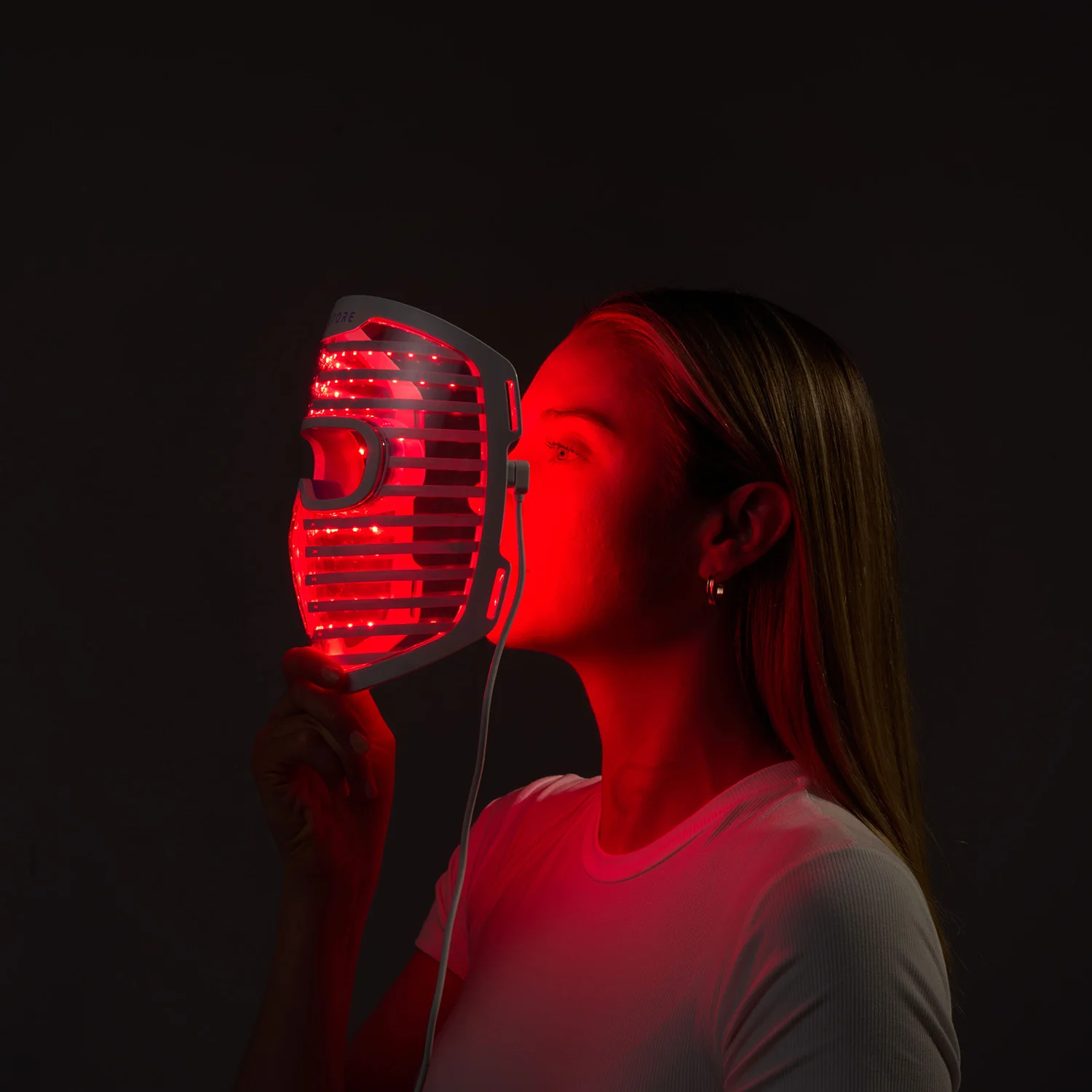Prebiotics vs Probiotics for Immunity: Boosting Your Body’s Defenses from the Gut
TL;DR: I was so done with brain fog, low energy, and those relentless spring allergies that I tested prebiotics vs probiotics for immunity. Curious about the difference between prebiotics and probiotics, I put on my detective hat to figure out which one actually supports immunity best. Turns out, a daily mix of fiber-rich prebiotics supplements and a diverse probiotics for immunity blend helped restore my balance.
For years, I struggled with seasonal allergies, brain fog, and relentless fatigue. After some digging, I stumbled upon the prebiotics vs probiotics debate, something I had no idea could make a difference in my immunity. Now my curiosity about gut health was sparked.
I learned that 70% - 80% of your immune system resides in your gut. So, I blew my pollenated nose, rolled up my sleeves, and dove into the research. Could prebiotics supplements or probiotics for immunity give my immune system the boost it needed? Let’s find out!
» Looking for an immune boost? Try Sea Moss: The Ocean’s Secret to Vibrant Health
Prebiotics vs Probiotics: The Belly of the Beast
Before we get into the difference between prebiotics and probiotics, let's break down what each one is and how they each support our gut health.
What Are Prebiotics?
Prebiotics are selectively fermented fibers, like inulin, fructo-oligosaccharides (FOS), and resistant starch, that escape digestion in the small intestine and feed colon residents.
Their fermentation yields short-chain fatty acids (SCFAs), notably butyrate, which supplies 70% of colonocyte energy. Also, SCFAs reduce NF-κB signaling, lowering proinflammatory cytokines IL-6 and TNF-α, promoting regulatory T-cell differentiation via HDAC inhibition.
In English: Imagine you have tiny helpers in your tummy called “good bugs.” When you eat special plant foods, these bugs make tiny bits of food juice. This juice is like superhero fuel for your tummy walls, keeping them strong. It also tells your body’s defenders to be calm instead of overreacting and getting you red and puffy when you don’t need it.
Foods That Contain Prebiotics
Prebiotics aren’t hard to come by; they can be easily found in the following common foods:
They are live microorganisms, primarily Lactobacillus and Bifidobacterium strains. Probiotics can survive gastric acid and bile and reach the colon when they’re ingested in adequate Colony Forming Units (CFUs). They do this by adhering to mucosal surfaces, blocking pathogen binding. Additionally, probiotics stimulate secretory IgA production, enhancing immune exclusion.
What Are Probiotics?
Foods That Contain Probiotics
Probiotics support our body’s digestion by improving our gut flora. You can usually find them in fermented foods and drinks like:
- Kefir
- Sauerkraut
- Kimch
- Miso
- Tempeh
- Kombucha
- Yogurt (“live & active cultures”)
A Love Child of Prebiotics and Probiotics: Synbiotics
Synbiotics combine targeted prebiotics with matching probiotic strains to boost short-chain fatty acid (SCFA) production and help beneficial microbes grow. Clinical trials show that 8 weeks of taking synbiotics can lower inflammation markers like CRP and IFN-γ, while increasing stool SIgA levels in healthy adults.
» Learn how to power up your cells with the Best CoQ10 Supplement
9 Key Immune Benefits of Prebiotics vs Probiotics

Curious how prebiotics vs probiotics for immunity stack up? Here's how prebiotics and probiotics support your gut and immune system in different, science-backed ways:
- Stronger Gut Barrier: Prebiotics feed gut bacteria that produce butyrate, a compound that keeps your gut lining tight and strong, which may prevent “leaky gut” and stop harmful microbes from slipping into your bloodstream.
- Better Immune Shield (IgA Boost): Probiotics help your body make more IgA. It’s a protective antibody acting like a first defense against germs as it lines your nose, mouth, and gut.
- Balanced Inflammation: Prebiotics and probiotics help with inflammation by lowering certain immune signals (like IL-6 and TNF-alpha) and encouraging a more balanced immune response.
- Improved Germ Defense: Some prebiotics byproducts help immune cells like macrophages spot and clear out invaders more effectively.
- Fewer Respiratory Infections: Taking probiotics regularly has been linked to fewer colds and shorter bouts of sickness, especially for kids and adults who tend to get run down.
- Gut-Brain-Immune Support: Your gut bacteria influence how your brain and immune system talk to each other, improving how your body handles stress and reducing brain-related inflammation.
- Lower Allergy Risk: Giving your babies probiotics early in life may train their immune systems to tolerate allergens better, reducing the chance of eczema and food allergies.
» Immunity matters more than ever: Here's what to know about H5N1 in 2025.
How Prebiotics vs Probiotics Boost Immunity: My 7-Day Trial
Curious if combining a prebiotic and probiotic supplement could help my immune system, I ran a mini self-experiment. Here's how the week went:
- Days 1-2: Started with 2g of inulin and a 10-strain probiotic. Some bloating and mild gas—likely my gut adjusting as SCFA-producing bacteria ramped up.
- Days 3-4: Digestive discomfort eased. Noticed more steady energy through the afternoon, and less of that usual 3 PM fog.
- Days 5-7: My focus sharpened, and my mood felt more balanced.
Week 1: My Prebiotic vs Probiotic Takeaway
About 15% better in daily comfort and energy. By week 4, my salivary IgA (a key mucosal immune marker) had climbed by 30%. Bonus, I hadn’t caught a single sniffle!
Pros and Cons
Prebiotics vs Probiotics vs Postbiotics
Think of postbiotics as the helpful byproducts created when probiotics break down prebiotics. These include substances like SCFAs and peptides, which offer powerful immune and antioxidant benefits. They’re great at getting past your body’s natural barriers, even more so than live probiotics, making them super effective at supporting your health.
Best Prebiotics vs Probiotics Supplements: My Top Picks
Choosing the right prebiotic and probiotic supplements for you is key. After testing both prebiotics and Probiotics, I gave some synbiotics a whirl. So I could discover which ones offer the best support for my gut-immune connection, I settled on these:
1. Prebiotics
38Tera DMN (Daily Microbiome Nutrition)

I started using DMN, or Daily Microbiome Nutrition, every morning, and within a week, my usual post-lunch bloating was gone. DMN works by feeding the good bacteria in your gut with a full spectrum of prebiotics. Whether you're comparing prebiotics vs probiotics or taking prebiotics supplements to boost your gut health, DMN has you covered. It also pairs well with probiotics for immunity to support a balanced microbiome.
Price: $79.95
Get it on: Press Hook
Goodness Lover: Better Gut Prebiotic Fiber Plus

I started using this prebiotic powder to support my gut health, and within a few days, I noticed better digestion. The blend works by nourishing the beneficial bacteria in your gut. It’s doctor-approved and made with the finest ingredients, making it an easy addition to any daily routine. If you’re looking to optimize your digestive wellness with prebiotics vs probiotics, this is a great place to start.
Price: $59.92
Get it on: Press Hook
Dr. Tobias Prebiotics Digestive Support

I’ve been using Dr. Tobias Prebiotics for a few weeks now, and I’ve felt a noticeable boost in my overall well-being. It’s a perfect companion to probiotics for immunity and works on its own, too. These prebiotics supplements are made with high-quality, non-GMO ingredients, and you don’t need to refrigerate them. Perfect if you’re looking to improve your gut health and immune system.
Price: $49.99
Get it on: Amazon
2. Probiotics
Physician's CHOICE 60 Billion Probiotics

I started using this probiotics supplement every morning, and after a week, I noticed improvements in my overall gut health. With an optimal blend of probiotics for immunity, this supplement is perfect for those looking to maintain a healthy microbiome. Whether you're new to prebiotics and probiotics supplements or looking for a quality probiotics supplement, this product is a great choice.
Price: $36.97
Get it on: Amazon
RSETU Probiotics for Men

My male roommate started taking this men’s probiotic every morning, and in just two weeks, my focus sharpened and my workouts felt easier. This probiotics for immunity formula delivers 500 B CFU across 12 proven strains plus organic turmeric, cranberry, and goji to support gut health. It’s perfect for keeping your microbiome balanced and your immune system strong.
Price: $25.10
Get it on: Amazon
Full Well Fertility Women's Daily Probiotic

I started taking Women’s Daily Probiotic every morning as part of my prebiotics and probiotics supplement routine. With 32 billion CFU from three clinically proven strains, it can support women through every stage, including pregnancy and breastfeeding. Taken daily, this probiotics for immunity formula helps promote a normal stress response, digestive health, and vaginal balance.
Price: $44.95
Get it on: Press Hook
3. Synbiotics
Zentastic Probiotics & Prebiotics Supplement

This probiotics for immunity blend packs 50 billion CFU across 16 strains and comes with built-in prebiotics supplements to feed those good bugs. The delayed-release capsules protect each strain until they reach your gut, where they support digestion, mental clarity, and steady energy. No fridge needed makes this prebiotics and probiotics supplement perfect for life on the go.
Price: $64.99
Get it on: Amazon
Goodness Lover Synbiotic Complet
I started taking Synbiotic Complete every morning and noticed smoother digestion and steadier energy by day six. This powerful prebiotics and probiotics supplement combines prebiotics, probiotics, and postbiotics in one formula to support my gut health and immunity.
Price: $69.95
Get it on: Press Hook
Seed DS-01 Daily Synbiotic

I gave Seed DS-01 Daily Synbiotic a try each morning, and by week two felt a real shift in my overall well-being. This prebiotics and probiotics supplement packs 24 researched strains and a plant-powered prebiotic capsule to fuel and deliver those microbes right where they belong. My digestion felt smoother, my skin looked clearer, and I even noticed a steady boost in my energy.
Price: $49,99
Get it on: Amazon
Bonus Selection! Probiotics for Your Pet
You don’t have to enjoy the benefits of a healthy gut alone. Now your pup can also enjoy the immune-boosting goodness of Probiotic supplements with this nutritious treat:
Finn Digestive Probiotics

I added Finn Digestive Probiotics to my dog’s daily routine, and he’s a happier pup already. This prebiotics and probiotics supplement powers his gut health by restoring good bacteria and keeping the bad ones in check. Packed with pumpkin fiber, it soothes his tummy, improves nutrient absorption, and even boosts his immune defenses. Now his digestion is smooth, and he’s more energetic on our walks.
Price: $34.00
Get it on: Press Hook
Risks and Considerations: Prebiotics vs Probiotics
While prebiotics and probiotics for immunity can work wonders for many, they’re not one-size-fits-all. Here’s what to keep in mind before adding them to your daily routine:
Possible Side Effects
When your gut flora shifts, your body might need a little time to adjust. During that transition, you may notice:
- Mild bloating or gas
- Temporary digestive discomfort
Who Can’t Take Prebiotics and Probiotics Supplements
Not everyone is a good candidate for these supplements. It’s best to consult your doctor, or avoid them, if you’re:
- Immunocompromised
- Recovering from recent GI surgery
- In the ICU
- Allergic to inulin or certain probiotic strains
FDA Disclaimer
Prebiotics and probiotics are supplements, not FDA-regulated medications. Always consult your healthcare provider before use, especially if you have a chronic condition or are taking other medications.
Prebiotics vs Probiotics: More Than a Gut Feeling
For years, spring allergies and brain fog had me feeling like my immune system was on its own. After diving into the research and running my own 7-day trial, I discovered it is not Prebiotic vs Probiotic but Prebiotics PLUS Probiotics. Teamwork makes the dream work… or your gut in this case.
If you’re curious what this dynamic duo can do for your energy, focus, and overall resilience. I recommend taking a reputable prebiotics supplement like 38Tera DMN alongside a multi-strain probiotics like Physician's Choice 60 Billion Probiotics.
This will give you the ultimate immunity-boosting synbiotic blend. Your gut…and immune system will thank you!
FAQs
1. Can prebiotics and probiotics be taken together?
Yes. Taking a prebiotics and probiotics supplement, also called a synbiotic supplement, gives you the best of both: fuel for your good gut bugs and live strains to boost your immune health.
2. Is it better to take prebiotics or probiotics?
You need both. Prebiotics supplements feed the good bacteria you already have, while probiotics for immunity introduce new helpful strains. Taking prebiotics and probiotics supplements often gives you the best results.
3. What are the signs you need prebiotics?
Watch for persistent bloating, irregular bowel movements, or low energy can all signal that your gut microbes need more fuel. Adding a prebiotics supplement can help restore balance.
4. Do prebiotics flatten your stomach?
Prebiotics can ease bloating over time by improving digestion and promoting regularity. It’s not an instant slim-down trick, but a balanced prebiotics vs probiotics routine can help your gut feel and look healthier.
5. Why do cardiologists warn against probiotics?
In very rare cases, live cultures in probiotics for immunity can enter the bloodstream and cause infection. This mainly affects people with certain heart valve problems or central lines. So, if you have a serious heart condition, discuss probiotic use with your cardiologist.
Products mentioned in this guide:







